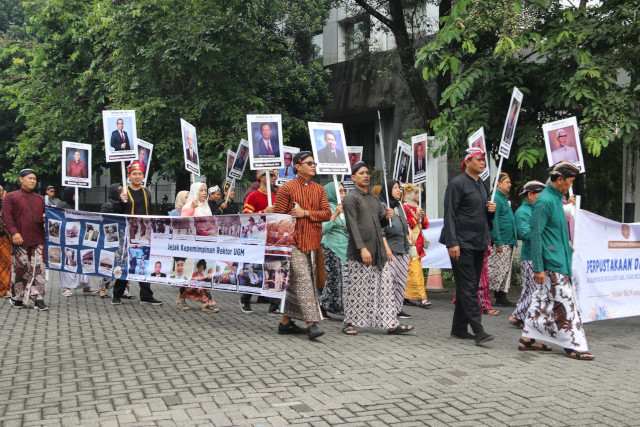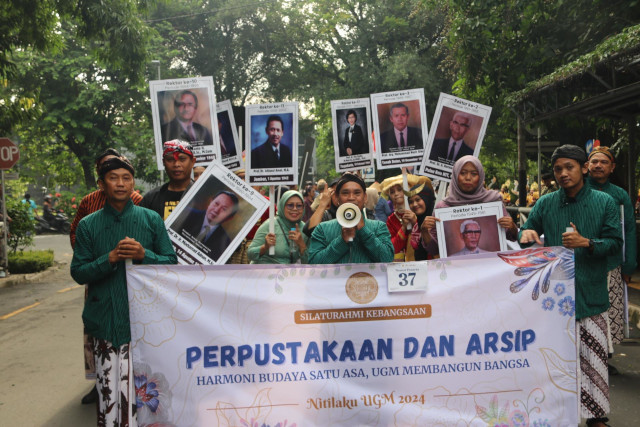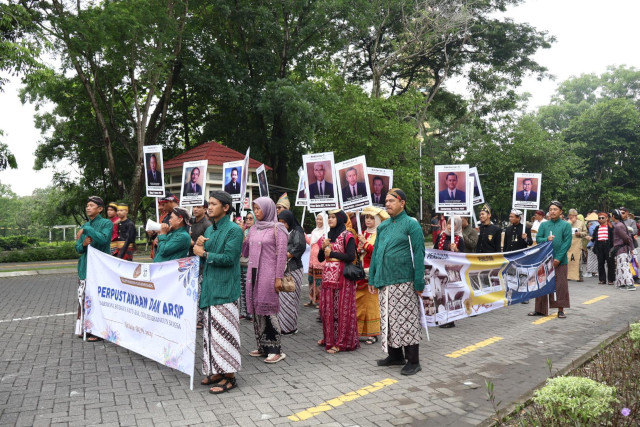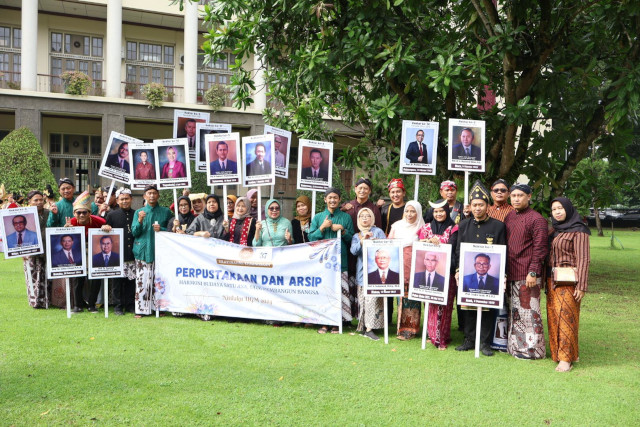Nitilaku 2024: UGM Library and Archives Highlight the Diverse Origins of UGM Rectors
News Monday, 16 December 2024
The Universitas Gadjah Mada (UGM) Library and Archives participated in the Cultural Parade of Nitilaku organized by the 75th UGM Anniversary Committee, held on Sunday, December 15, 2024. With the theme "National Unity Through Friendship," Nitilaku served as a meaningful moment to reflect on unity in the rich diversity of Indonesia's culture.
Carrying a unique concept rich in historical value, representatives from the UGM Library and Archives captivated the audience by wearing traditional attire representing the regions of origin of UGM’s rectors. In addition, they carried portraits of UGM rectors, from the first rector, Prof. Sardjito, to the current rector, Prof. Ova Emilia. This highlighted UGM’s identity as an inclusive institution, representing Indonesia’s diverse cultural heritage through its leaders.
Beyond the parade, the UGM Library and Archives enriched the event by sharing valuable information about the legacy of UGM’s rectors, the history of UGM from its establishment in Yogyakarta Palace to its move to Bulaksumur, as well as the university's contributions to education, research, and community service over the past seven decades.

The UGM Library and Archives’ participation in Nitilaku also demonstrated its support for the Sustainable Development Goals (SDGs), particularly: SDG 4: Quality Education through the integration of local cultural education into academic activities; SDG 11: Sustainable Cities and Communities by celebrating traditional attire as part of cultural heritage that must be preserved; SDG 16: Peace, Justice, and Strong Institutions by honoring cultural diversity to create a peaceful and inclusive society.



The cultural parade began at Wisma Kagama and ended at the UGM Balairung, involving various units within UGM and the UGM Alumni Family (Kagama). Participants enthusiastically showcased the rich cultural traditions from across the archipelago, creating a vibrant atmosphere that reflected the spirit of unity and nationalism.
Through its participation, the UGM Library and Archives reinforced its role as a custodian of the nation's history and culture, while also driving sustainable development in education and cultural preservation.
Contributor: Wasilatul Baroroh
